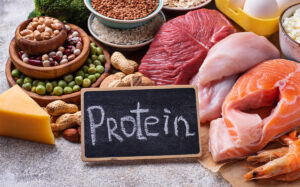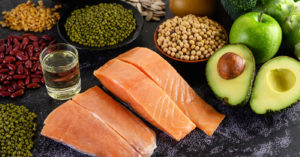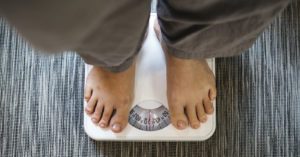Your Stats:
Your BMR is
Your TDEE is
Surplus Calories
Daily Calories
No. of days to reach your goal
Target date (dd/mm/yyyy)
MACRO CALCULATOR
Select a preset
(carb % / protein % / fat %)
Despite people focusing on how challenging it is to lose weight, gaining lean muscle mass could be equally difficult, if not more.
Some of the causes that may interrupt this process include fast basal metabolic rate (BMR), small appetite, and not knowing the amount of food you should be eating.
This post will focus on the factors that inhibit bulking and how our weight calculator might be the solution you’ve been looking for.
Why is it difficult to gain weight?
As mentioned above, there are several factors that could prevent weight gain, including:
Fast metabolism
The basal metabolic rate, or BMR, is used to estimate the number of calories your body needs for 24 hours. This number reflects the energy used by your organs to keep on functioning.
BMR is subject to numerous factors that either accelerate or slow it down. For instance, being a male means having a relatively faster BMR, which is due to testosterone and the bigger lean muscle mass.
Other factors that influence BMR are body type, weight, dietary choices, degree of physical activity, and genetics.
In some cases, however, a fast BMR could be an obstacle in the way of gaining muscle mass or fat.
For instance, If you are a mixed martial artist, your body is used to fast caloric expenditure due to the high level of activity and metabolic modifications. So, if you decide to bulk one day, you may face trouble doing that.
Small appetite
This is perhaps the most important factor that determines weight fluctuations.
To understand how your appetite works, we need to tackle the physiology of the digestive tract.
After ingesting food, it will get broken down throughout several steps that start at the mouth thanks to oral enzymes (e.g., amylases) and ends at the level of the colon.
The primary physiological processes that control body weight are:
- The release of hunger-suppressing hormones (e.g., leptin, ghrelin)
- Stomach capacity
These two factors are the main driver of your appetite. For instance, if you don’t eat frequently and/or consume small meals, the stomach is bound to shrink, which reduces the volume of food it can handle at once. Consequently, you are more likely to feel satiated very quickly.
Moreover, full gastric capacity will stimulate several metabolic cascades that lead to the production of hunger-suppressing hormones, which further reduces caloric intake.
To get an idea about the number of calories you need to consume in order to gain weight, you need to determine your goal and learn some basic conversions (one pound=3500 calories).
To gain one pound, you must consume an additional 500 calories per day for an entire week. However, these calculations could get complicated since the degree of physical activity and exercise routine are difficult to account for.
For this reason, we developed our weight gain calculator, which takes into consideration all factors (e.g., age, gender, degree of physical activity, current weight, ultimate goal) to generate the most accurate results.
Keep in mind that the one pound=3500 calorie rule is somewhat controversial, as some researchers believe it’s an overestimation.
Nevertheless, this number could be used as an appropriate approximation.
Tips on how to gain weight in a healthy way
If you want to gain weight, it is crucial to do it the right way.
For example, binging on soda and patisseries may seem like an appealing option; however, it could lead to serious consequences for your overall health.
Here are a few practical tips to help you with this journey:
Consume more calories than your body burns
As simple as this tip might sound, it is the best approach to gaining more muscle and fat.
This means focusing on nutrient-dense foods that contain a high number of calories, such as pasta, meats, fish, beans, etc.
The estimated number of calories you need to consume can be obtained by using our weight gain calculator, which will help you plan your meals accordingly.
Load up on protein
Protein is a crucial macronutrient for people who want to gain weight in a healthy fashion.
You see, protein will rarely get transformed into stored energy forms, which reduces the chances of increased adipose tissue.
According to studies, individuals who are trying to gain weight can achieve their goals faster if they adopt a protein-rich diet.
However, protein is also a potent stimulator of satiety, which may decrease your appetite, and consequently, the number of calories you consume.
A good place to start is by aiming for 1 gram of protein per pound of body weight.
High-protein foods include meats, fatty fish, eggs, dairy products, and nuts. If you find it difficult to get the recommended amounts of protein from your diet, you can get supplements such as whey protein.
Add some sugar to your diet
Carbohydrates are your best friend if you’re trying to gain weight.
Most modern foods are smaller in size and loaded with carbs, which is exactly what you want to build muscle and fat.
Note that not all carbs are created equally, hence the need to focus on complex carbohydrates that carry some benefits.
How to properly use the weight gain calculator
Our weight gain calculator is very intuitive and easy to use, even for beginners.
All you need to do is insert the following information to get an estimated number of calories you need to consume:
- Start by choosing the unit of measurement you want to use
- Select your gender
- Enter basic information about your age, weight, and weight
- Type the date you will start the diet and your ultimate goal
- Select the surplus percentage to determine the rate of weight gain
- Select your level of daily activity
- Choose the intensity of your workouts (if performed)
How to gain lean muscle mass
Strength training
The key to muscle building is consistent strength training that pushes your limits and causes your muscles to undergo microscopic tears.
Generally speaking, you should aim for 3 sessions of weight lifting per week, with each session lasting around 45-60 minutes.
Another important aspect is to keep challenging your muscles by lifting a heavier weight whenever you feel comfortable with the previous one.
This way, your muscles will undergo enough stress to cause the necessary microscopic tears for hypertrophy.
In other words, don’t stick to a constant number of repetitions since training until you’re no longer capable of doing another repetition is what causes the microscopic tears.
Nutrition
As we mentioned above, a protein-rich diet is crucial to gain muscle mass, and in most cases, it is more important than exercise!
For instance, if you consider that strength training contributes to 25% of your muscle mass, nutrition is responsible for the other 75%
Dietary supplements
The market is loaded with weight gain supplements that claim to be effective in increasing body weight.
However, you should be careful with these advertisements since many of their products are ineffective or even harmful.
When choosing a supplement, focus on high-quality products that contain a rich diversity of amino acids necessary for muscle growth and lipolysis.
One golden rule to follow is:
If it sounds too good to be true, chances are, it is.
Frequently Asked Questions
Is it easy to gain weight?
The answer to this question is complicated. While some people may find it relatively easy to gain weight, others can face difficulties due to the factors we mentioned above.
However, the most common mistake people make when trying to gain weight is not gathering all the necessary information, such as the appropriate caloric intake and duration required to witness any results.
For this reason, our weight gain calculator was designed to take into account all the other factors to accelerate this process.
How does our weight gain calculator work?
Our calculator uses all the information your input (e.g., gender, age, weight, height, degree of physical activity, surplus percentage) to come up with the most accurate number of calories to consume per day.
How much weight should I gain?
The amount of weight you should gain is highly dependent on your baseline.
For instance, if you are severely underweight, it might be reasonable to opt for an aggressive approach.
Keep in mind that gradual weight gain is always recommended, as it lasts longer. Researchers found that rapid weight fluctuations will often get reversed, leading back to the starting point.
How do I convert between calories and bodyweight?
According to study, 3500 calories is typically equal to one pound, whereas 7,000 calories is equal to one kilogram.
However, nutritionists and fitness experts are still debating about the accuracy of these numbers, but for our sake, an approximation is sufficient.








